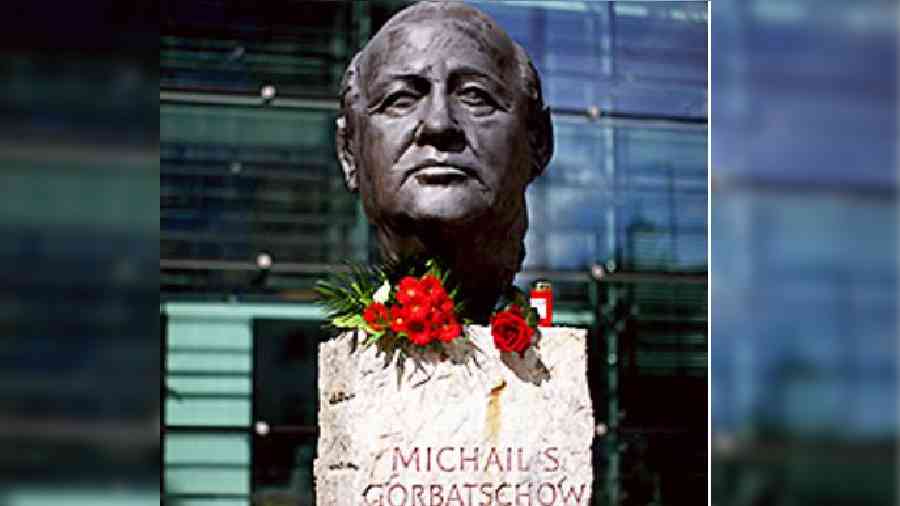I was 6 when the Soviet Union broke up.
I had no idea at the time that the person most responsible for the overwhelming changes transforming my hometown in Siberia was a man called Mikhail Gorbachev.
I remember standing in line for bread in the dying days of Communism, but I don’t remember much discussion of his “perestroika” (or rebuilding) programmes.
It was too cold for that.
I recall sitting on my father’s shoulders at pro-democracy rallies and surveilling the huddled masses in the plaza, but the snatches of conversation I could hear were about people being fed up — not about the man with a distinctive birthmark sitting in the Kremlin, a man I sometimes saw on television.
The name on everyone’s lips at that time, the man of the hour, was Boris Yeltsin.
Yeltsin, the charismatic former leader of the Russian Communist Party, had supplanted Gorbachev to become the first President of a new, chaotic, violent, poor but democratic nation called Russia.
Ironically, my first distinct, independent memory of Gorbachev, as perhaps for many of my generation, dates to a 1998 commercial for Pizza Hut.
In it, the last Soviet leader takes his granddaughter to the newly opened American fast-food restaurant near Red Square, a move meant to show Russia’s inexorable modernisation.
“Thanks to him, we have Pizza Hut!” the grateful restaurant visitors cheer in the ad.
For some reason, the ad always rubbed me the wrong way. In our Siberian backwater, we never got any Pizza Huts — few could’ve afforded them.
Why is everyone in that ad so smug? I wondered.
A few months after that ad aired, the Russian economy cratered, in its first major crisis since the fall of the Soviet Union.
When I moved to the West to study, I was surprised by the respect and praise Gorbachev commanded there.
His general image in the West — that of a shrewd, iconoclastic statesman who had outmanoeuvred Soviet hardliners and brought the Cold War to an end without a nuclear catastrophe — was in jarring contrast to how most Russians saw him.
In Russia, he was widely despised.
The Communists blamed him for breaking up a country they had believed in. At home, he was viewed as a traitor or at least a naïve fool.
New York Times News Service










